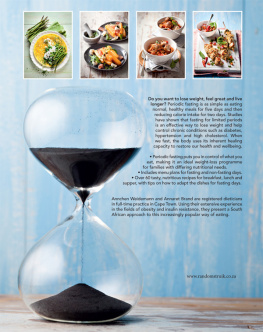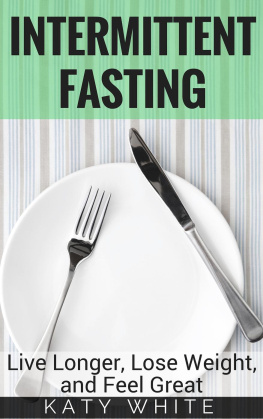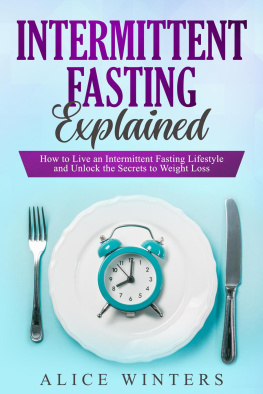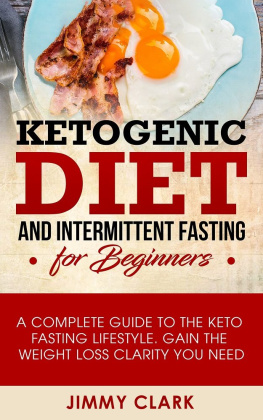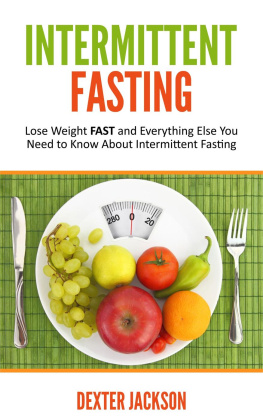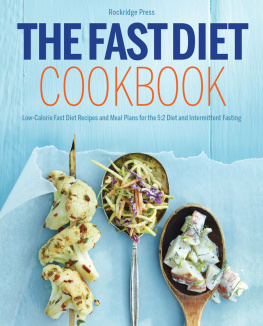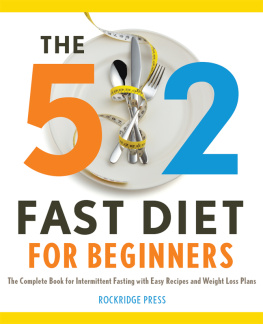
Published in 2016 by Struik Lifestyle
(an imprint of Penguin Random House South Africa)
Company Reg. No. 1953/000441/07
The Estuaries, 4 Oxbow Crescent, Century Avenue
Century City, 7441
PO Box 1144, Cape Town 8000, South Africa
Copyright in published edition: Penguin Random House South Africa 2016
Copyright in text: Annchen Weidemann and Annaret Brand 2016
Copyright in photographs: Penguin Random House South Africa 2016, except Anthony Johnson/Images of Africa
ISBN 978 1 43230 424 9
Publisher: Linda de Villiers
Managing editor: Cecilia Barfield
Editors: Joy Clack, Gill Gordon
Designer: Helen Henn
Photographer: Jan Ras
Food stylist: Sonja Jordt
Proofreader: Samantha Fick
Indexer: Gill Gordon
All rights reserved. No part of this publication may be reproduced, stored in a retrieval system or transmitted in any form or by any means, electronic, digital, mechanical, photocopying, recording or otherwise, without the prior written permission of the publishers and copyright holders.
www.randomstruik.co.za
Subscribe to our newsletter for monthly updates and news.

CONTENTS
A NOTE FROM THE AUTHORS

|
|---|
 | If you have had too much to eat, the best thing to do is to fast. |
In writing this book, we experienced almost no lowlights, only wonderful highlights! With the unwavering support of Professor Tess van der Merwe, we had great pleasure in putting our knowledge to paper in a practical, user-friendly way while maintaining sound, scientific principles based on in-depth research.
Our main aim with this book is to revive the ancient discipline of contained and periodic fasting and to set it in its rightful place in our caloric overladen society with all its ill health and obesity-laden co-morbidities. If we can make a dent in these epidemiological conditions, we will have achieved what we set out to do.
Our most heartfelt gratitude goes to Professor Tess van der Merwe for her input and support. We have the highest regard for her knowledge, expertise and experience as a world-renowned endocrinologist and Honorary Professor at the University of Pretoria. Thank you Prof. Tess!
We also wish to thank our patients for their trust in us and the almost unbelievable results they have shown with their adherence to periodic fasting. They have helped strengthen our confidence in this beautiful scientific discipline.
Annchen Weidemann RD ( SA )
Annaret Brand RD ( SA )
FOREWORD
Periodic fasting: A refined medical concept
Within the field of biomedical science, the creation of mild degrees of stressful conditions is receiving an increasing amount of attention, the reason being the observed beneficial effect this has on outcome data within a variety of clinical settings. Some mild stressors have also been shown to have positive effects on survival and aging in animal and human models.
This adaptive response to mild stress is known in the scientific world as hormesis, from the Greek word meaning to excite, and first entered the scientific literature in 1943 following a publication by Southam and Ehrlich. However, it took decades of refined research at a molecular level before the concept found a foothold in scientific literature, with the number of citations exceeding 4 500 in the year 2012.
The father of modern-day hormesis, Edward J. Calabrese, laid the foundation for many of the scientific principles in the field of hormesis. One such field where the principles of hormesis can be applied very astutely is within the field of periodic fasting, where the stress of periodic calorie restriction can elicit the cytoprotective effect in the human body required to improve health, more so in the overweight and diabetic population.
Possible mechanisms by which intermittent fasting will confer health benefits will be through an increase in mitochondrial metabolism, the increase in reactive oxygen species, the increase in activity of the hypothalamic-pituitary-adrenal axis and activation of sirtuin 1 (SIRT 1) for better cellular defence. Some of the major health benefits will be an improvement in glucose metabolism, increased insulin sensitivity, cardio protection and diminished age-related brain deterioration.
Stressful events will always happen, but it is how well the individual is able to process and integrate their impact that will make the difference. Periodic fasting may well be the way to tap into the wisdom of the body at the level of the mind-body-matrix (Cannon, 1932) and this book will most certainly serve as a valuable first introduction to the reader where information may be required on this current scientific topic. In addition, it outlines a very practical nutritional plan that can be implemented with ease. It is a homegrown book, written for the South African public by two very experienced nutritionists, but based on the sound principles of an established and prestigious international scientific audience and many decades of refined research. I wish the readership all the best as they explore this new and refreshing topic and new lifestyle.
Professor Tess van der Merwe
Endocrinologist and Honorary Clinical Professor and Researcher, University of Pretoria
CEO, CENTRES FOR METABOLIC MEDICINE AND SURGERY SOUTH AFRICA ( CEMMS SA );
CHAIR OF THE SOUTH AFRICAN SOCIETY FOR SURGERY, OBESITY AND METABOLISM ( SASSO ).
. Southam, CM and Ehrlich, J. 1943. Effects of extract of western red-cedar heartwood on certain wood-decaying fungi in culture. Phytopathology, 33: 517524.
. Cannon, WB. 1932. The Wisdom of the Body. WW Norton, New York.
WHAT IS PERIODIC FASTING?
Fasting has been practised for millennia, both as a long-term restriction of food and as short-term fasts for spiritual or health-related reasons. Recently, science has shed light on the role that fasting can play in improving longevity, optimising energy metabolism and increasing cellular protection. Periodic fasting has the potential to delay ageing and help prevent diseases, while avoiding the side effects caused by drug treatment. Early medicine, in the form of the teachings of Hippocrates and Socrates, recommended fasting for health and recovery. Religious leaders, such as Moses and Jesus, fasted to enhance spiritual renewal, while Mahatma Ghandi fasted to facilitate peaceful reconciliation in India. Many Muslims recognise the beneficial effects they experience during the Islamic fasting month of Ramadan.
Fasting periodically does not imply a period of starvation from which you will need to recover. It is a predetermined period of time in which dietary intake is significantly restricted, or restricted to water only, in order to lift the burden from an overnourished and metabolically stressed body.
OBESITY A PUBLIC HEALTH CRISIS
Obesity has become a public health crisis. All over the world, obesity statistics are outstripping comparable statistics for undernutrition. Researchers predict that if things continue in this way, by the year 2030, more than 80 per cent of people will be overweight, with over 50 per cent of those, obese. These are scary figures and clearly it is time for a different, sustainable, approach to reduce the incidence of obesity in our society. Apart from being a health risk on its own, obesity is a major risk factor in the development of chronic diseases such as heart disease, type 2 diabetes, high blood pressure and various kinds of cancer. When we consider overall health conditions and health-related costs, obesity has far worse effects than both smoking and drinking.
Next page
